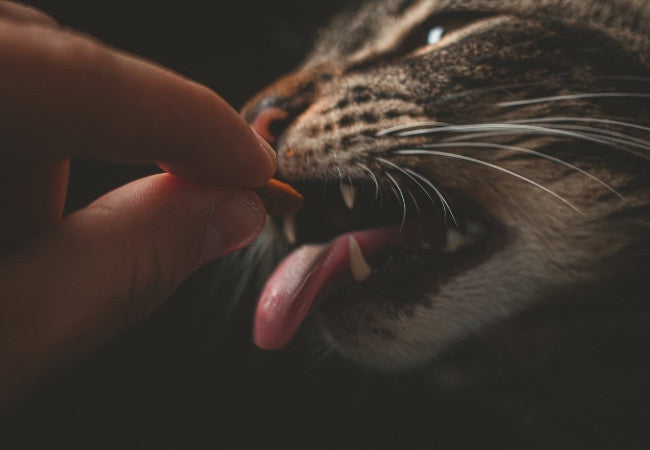If you are considering pulling out pots and pans to whip up some savoury treats for your cats, you should know about the digestive system and dietary needs of your cats as well as what foods to stay away from. The following common food items should not be fed.
Alcohol
Alcoholic beverages and food products containing alcohol can cause vomiting, diarrhoea, decreased coordination, central nervous system depression, difficulty breathing, tremors, abnormal blood acidity, coma and even death.
Bones (from fish, poultry, or other meat sources)
Ingestion can cause obstruction or laceration of the digestive system.
Chocolate, coffee and other caffeine
Chocolate contains substances called methylxanthines, which are found in cacao seeds. Methylxanthines are also found in caffeinated beverages and can cause vomiting and diarrhoea, high body temperature, muscle tremors, abnormal heart rhythm, abdominal discomfort, increased thirst, and seizures.
Citrus
Citrus essential oils can cause irritation and possibly even central nervous system depression.
Fish (raw)
An enzyme in raw fish destroys thiamine, which is an essential B vitamin for your cats. A lack of thiamine can cause serious neurological problems and lead to convulsions and coma.
Grapes and raisins
Grapes and raisins can cause acute kidney failure in cats. Within 24 hours of ingestion, vomiting, diarrhoea, and lethargy can occur.
Macadamia nuts
Macadamia nuts can cause lethargy, vomiting, hyperthermia and tremors in cats. Some other types of nuts, such as walnuts, can also be toxic to felines.
Milk and other dairy products
Most cats are lactose intolerant, and consuming dairy products can lead to diarrhoea and vomiting.
Onions and garlic (raw, cooked, or powder)
These foods can cause damage to your cats' red blood cells and lead to anemia. Concentrated forms, such as onion soup mix or garlic powder, can also be toxic.
Meat and eggs (raw or undercooked)
Consumption of raw, non-heat processed meat and raw eggs can cause salmonella or E. coli poisoning in cats. Symptoms of the illness vary but can include vomiting, diarrhoea, and lethargy.
Salt
If eaten in large quantities, it may lead to vomiting, diarrhoea, depression, tremors, elevated body temperature, seizures and even death.
Yeast dough
Yeast dough can rise and cause gas to accumulate in your cats' digestive system, causing pain and possible rupture of the stomach or intestines.
Featured image by Lucas Pezeta

